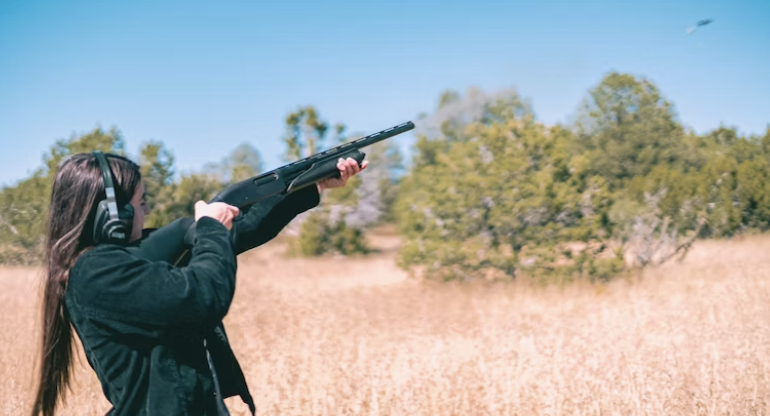What Is The Best Choke For Duck Hunting?
Oct 13th 2023
For duck hunting, many experienced hunters opt for a modified choke, which offers a balanced pattern and is versatile enough to handle different situations. A modified choke provides a good mix of pellet spread and density, making it suitable for various duck hunting scenarios.
That said, if you primarily engage in pass shooting or targeting ducks at longer ranges, a full choke may be more suitable. It provides a tighter pattern, ensuring that your shots reach the ducks with sufficient force and precision even at extended distances. However, it's important to remember that the effective range of a full choke is limited, and you should be confident in your ability to judge the distance before using it.
Can You Use Full Choke For Ducks?
While a full choke can be used for duck hunting, it's essential to understand the potential advantages and limitations of this choice. As mentioned earlier, a full choke produces a tighter shot pattern, which can be beneficial for ducks flying at longer distances. However, using a full choke for ducks requires a high level of accuracy in gauging the range and the ability to adjust your aim accordingly.
In situations where ducks are flying closer, using a full choke can be less effective. The dense pattern may result in fewer pellets striking the target, potentially leading to wounded ducks that are more challenging to retrieve. It's worth noting that some hunters may use a full choke in combination with non-toxic shot materials, such as steel or tungsten, to increase its effectiveness, but the potential for over-penetration and missed shots still remains.
What Is The Best Choke For Ducks Over Decoys?
Ducks over decoys are a common scenario in waterfowl hunting. When ducks are lured in close to your position, you need a choke that can provide a balanced and forgiving pattern. In these situations, the best choke for ducks over decoys is often the improved cylinder (IC) or skeet choke.
The improved cylinder choke offers a wider pattern that is well-suited for close-range shooting. It allows you to maintain a broader margin of error, making it easier to hit ducks that are circling your decoys. Similarly, the skeet choke provides an open pattern, helping to ensure that you don't miss those close-range opportunities when ducks are within your decoy spread.
Choosing a choke with a less constricted pattern for ducks over decoys can be a game-changer, increasing your chances of a successful hunt without risking over-penetration or missed shots. It's important to adapt your choke selection to the specific conditions you encounter.

What Size Is A Waterfowl Choke?
For duck hunting, the following common choke sizes are often used:
- Cylinder (CL or CYL) - This choke has no constriction, resulting in the widest pattern. It's suitable for close-range shooting, typically under 20 yards.
- Improved Cylinder (IC) - Slightly tighter than cylinder, it offers a good balance between pattern spread and density. It's ideal for ducks over decoys and close to moderate ranges.
- Modified (MOD) - This is a versatile choke for duck hunting, offering a moderate constriction and pattern spread. It's suitable for various hunting situations.
- Full (F) - The tightest constriction, best suited for longer-range shots and pass shooting. It provides a dense pattern for precision at greater distances.
- Specialty Chokes - Some manufacturers offer specialty chokes, such as waterfowl-specific chokes, which may have unique constrictions optimized for specific hunting conditions. These can be worth considering if available.
Which Type Of Choke Is The Tightest?
The tightest choke available for your shotgun is typically the full choke, often denoted as "F" or "FULL." A full choke provides the least amount of constriction, resulting in a narrow and dense shot pattern. This tight constriction is most suitable for long-range shots, such as pass shooting or targeting ducks at distances beyond 40 yards.
Conclusion
Selecting the right choke for duck hunting is a critical aspect of ensuring a successful and ethical hunting experience. While there is no one-size-fits-all answer, understanding the factors that influence choke choice, such as the range, hunting conditions, and personal preferences, can help you make the right decision.
In general, a modified choke offers versatility and is suitable for a wide range of duck hunting situations, while a full choke is best for longer-range shots. When ducks are circling your decoys, consider using an improved cylinder or skeet choke for a wider pattern that increases your chances of success. Ultimately, your choice of choke should align with your hunting style and conditions, allowing you to make the most of your duck hunting adventures.


